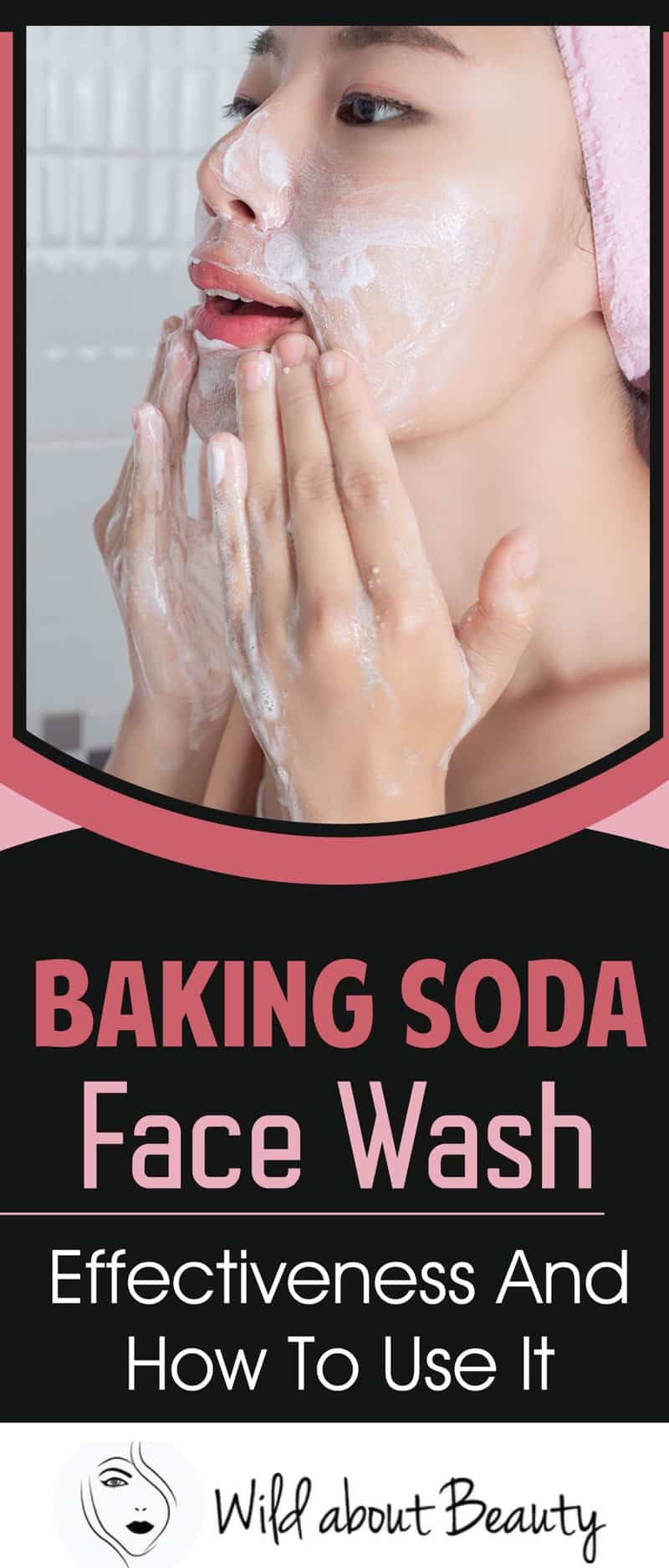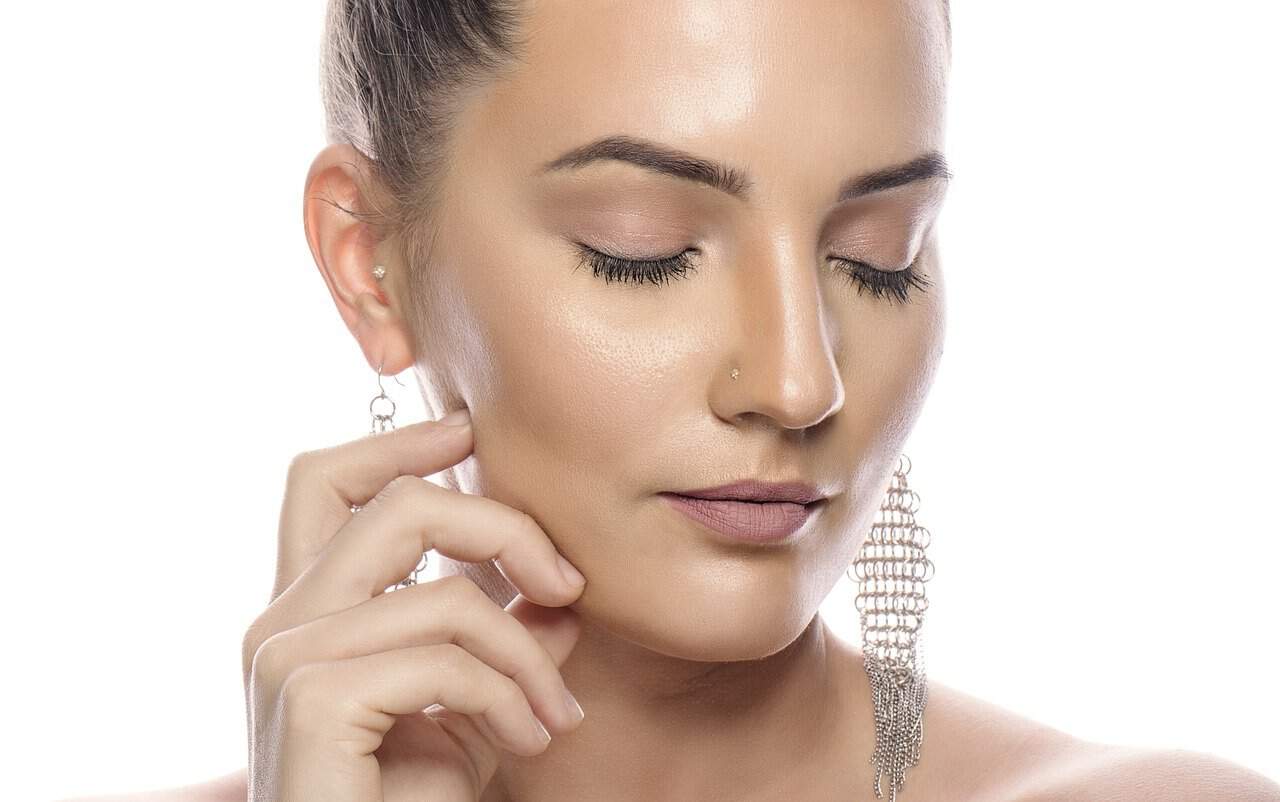Baking soda, or sodium bicarbonate, has become a popular home remedy for various purposes in recent years. Known for its versatility, it is used in cleaning tasks, personal care, and even health remedies. One particular use that has sparked debates is the application of baking soda as a face wash.
In this article, we will explore the effectiveness of baking soda face wash, highlighting the pros and cons of its usage. While some individuals swear by its benefits, others express concerns about potential harm. By delving into both sides of the controversy, we aim to provide a clear and neutral understanding of this popular basic household ingredient in skincare.
Chapter Overview
Why Use Baking Soda Face Wash?

Removes Acne Scars
Baking soda is an exfoliating agent, meaning it helps remove dead skin cells, bacteria, oil, and debris clogging up pores. Clogged pores can lead to acne, which, if not treated properly, can leave scars and marks. Baking soda’s exfoliating properties can help remove these scars by creating a paste of baking soda and water, applying it to the skin, and revealing a fresh new layer beneath.
Soothes Skin Rashes
Baking soda has anti-inflammatory properties, helping soothe skin irritation. To achieve this effect, mix a drop or two of coconut oil with baking soda and apply it to the face twice per day.
Treats Yeast Infection
With its antibacterial and antifungal properties, baking soda can be used to treat facial yeast infections. For yeast infections on the mouth, create a paste with baking soda and water, apply for 2 to 4 minutes, and then rinse it off.
Helps With Sunburn
Baking soda offers a cooling and soothing effect, useful for mitigating sunburn. Mix baking soda with cold water and apply it to the affected areas. Wash off after a couple of minutes for a soothing effect.
Remove Skin Tan
Baking soda’s exfoliating properties can help remove skin tan. By mixing baking soda with vinegar and some water, a paste can be applied to the skin for 10 minutes. Depending on the severity of the tan, repeat this process twice per week.
Natural Cleanser
As an alkaline product, baking soda can help soften sebum and debris on the face, clearing pores. When applied to the face, it absorbs excess oil that could otherwise clog pores.
Remove Blackheads
The antibacterial and antifungal properties of baking soda are useful in treating infections that cause blackheads. By applying baking soda to the skin, it helps loosen the skin around blackheads, allowing for easy extraction.
Skin Whitening
Lastly, washing the face with a mix of water and baking soda can help whiten the skin. Gently scrub in circular motions for two minutes before washing the face to reveal lighter skin.
Three Ways To Use Baking Soda
- Face Mask: Create a paste by mixing 1-2 teaspoons of baking soda with a small amount of warm water. Gently massage the paste onto your face, avoiding the eye area. Allow it to sit for 10 minutes before rinsing with warm water. This mask can help address a variety of skin issues.
- Exfoliating Agent: Combine the same mixture as mentioned above for the face mask. Apply the paste to your face and gently rub in a circular motion to remove dead skin cells. Rinse off the mixture immediately after application. Boost any facial scrub by adding baking soda to enhance its pore-cleaning properties.
- Face Wash: Enhance any facial wash by adding two teaspoons of baking soda. Gently massage the mixture onto the face and rinse thoroughly with warm water. This combination provides a deeper cleanse while maintaining a neutral tone of voice.
SEE ALSO: Baking Soda Face Mask – 10 Ways To Effectively Use Baking Soda On Your Face
Side Effects And Precautions
When considering the use of baking soda as a facial cleanser, it is essential to be aware of its potential side effects and necessary precautions. This is particularly important for individuals with sensitive skin. The following list highlights some possible adverse reactions and measures to take:
- Dry Skin: Using baking soda may excessively dry the skin, leading to early onset wrinkles. Opt for a gentle, hydrating moisturizer to counteract this effect.
- Irritation and Inflammation: The alkaline nature of baking soda (pH of 9) can cause irritation, redness, and inflammation. To mitigate this risk, use anti-inflammatory skincare products if irritation occurs.
- Sensitivity to the Sun: Baking soda’s alkalinity may increase your skin’s sensitivity to sunlight. Be sure to use sunscreen and avoid excessive sun exposure when using baking soda as a facial cleanser.
- Acne Breakouts: The disruption of your skin’s natural acid mantle due to baking soda’s alkaline pH may lead to worsening acne breakouts. Observe your skin closely to assess if baking soda is suitable for your skin type.
- Over Exfoliating: Baking soda acts as a chemical and physical exfoliator, potentially triggering excessive exfoliation. Limit the frequency of baking soda face washes and monitor your skin’s response.
It is crucial to consider these potential side effects and precautions when deciding whether to incorporate baking soda into your skincare routine. Always prioritize your skin’s health and consult with a dermatologist if you have concerns or experience adverse effects.
Conclusion
Incorporating baking soda into a skincare routine could be beneficial for some individuals, while not effective for others. This is due to the fact that everyone’s skin is unique. Before applying baking soda to the entire face, it is wise to perform a patch test.
It is important to remember that several manufactured facial products share alkaline properties with baking soda. The distinction between these products and baking soda lies in baking soda’s additional attribute as a physical exfoliating agent.
To maintain healthy skin, one should consider evaluating the impact of various skincare products, including baking soda, and make informed decisions based on personal skin type and preferences.

